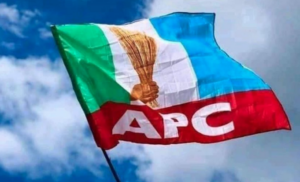
Nigeria’s debt profile looks set to rise by another $2.6 billion as the Senate, on Wednesday, approved the sum out of the $5.5 billion external borrowing request sent to the National Assembly by President Muhammadu Buhari in May last year.
This new approval will raise Nigeria’s external debt profile to over $87 billion. When the balance of nearly $3b is approved before the end of the year, the external debt will hit $90 billion.As at September last year, according to Proshareng.com, the Q3, 2020 Total Public Debt Stock released by the Debt Management Office (DMO), revealed that the Total Public Debt Stock stood at N32.223 Trillion or USD84.574 Billion.
Proshare adds, “The Debt Stock is made up of the Domestic and External Debt Stocks of the Federal Government of Nigeria (FGN), the 36 State Governments and the Federal Capital Territory (FCT).
“The break down of the Public Debt Stock showed that 37.82% was External, while the balance of 62.18% was Domestic.
“Compared to the Total Public Debt Stock of N31.009 Trillion as at June 30, 2020, the Debt Stock in Q3 2020 increased by N1.214 Trillion or 3.91%.
“The FGN, State Governments and the FCT all recorded increases in their Debt Stock due to borrowings to enable them respond appropriately to the COVID-19 Pandemic and to meet revenue shortfalls.
“Issuance of Promissory Notes by the FGN to settle inherited liabilities have also contributed to the growth in the Public Debt Stock since the year 2018 when they were first issued.
“While N20.136 Billion of Promissory Notes were issued in Q3, 2020, as at September 30, 2020, the Promissory Notes Outstanding, which are all included in the Domestic Debt Stock, stood at N971.878 Billion.”
Wednesday’s approval by the Senate came after the Upper Chamber considered a report by the Committee on Local and Foreign Debts during plenary.
The approved sum, according to the Chairman of the Local and Foreign Debt Committee, Clifford Ordia, would see €995 million euros going to finance priority projects of the federal government, while $1.5 billion (USD) would be disbursed to the thirty-six state governments to finance critical projects.
Out of the total sum approved, $1.5 billion is to be sourced from the World Bank; €671 million euros from the Export-Import Bank of Brazil; and another €324 million euros from the Deutsche Bank of Germany.
The tenor/moratorium of the loan to be sought from the World Bank is 25 years at an interest rate of 2.45 percent per annum; while that from the Export-Import Bank of Brazil is for 15 years at an interest rate of 2.935 percent; and the loan request from the Deutsche Bank of Germany for seven (7) years at 2.87 percent interest rate.
President Buhari, in a letter dated May 19, 2020, sought the approval of the National Assembly to secure a foreign loan to the tune of $5.513 billion to finance deficits contained in the 2020 budget.
He explained that the loan would be sourced from the International Monetary Fund, World Bank, African Development Bank, Export, Import Bank of Brazil and the African Export, Import Bank.
According to President Buhari, out of the total $5.513 billion (USD) loan request, the sum of $3.4 billion (USD) would be sourced from the International Monetary Fund; $1.5 billion (USD) from the World Bank; $500 million (USD) from the African Development Bank; and $113 million (USD) from the Islamic Development Bank.
However, Chairman of the Senate Committee on Local and Foreign Debt, Clifford Ordia (PDP, Edo Central), while giving a breakdown on the application of the sum approved National Assembly, disclosed that €995 million (Euros) would be deployed to finance priority projects to address the impact of the COVID-19 pandemic and to improve Nigeria’s food security through the mechanization of agriculture and Agro processing in Nigeria.
He explained that a total of six indigenous assembly plants, one in each geo-political zone have been identified and would be rehabilitated to assemble completely knocked down CKD mechanization farm machinery and equipments to be imported from Brazil.



